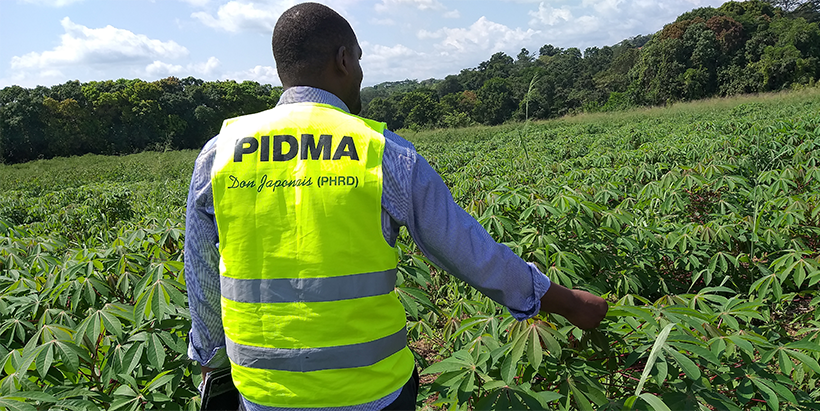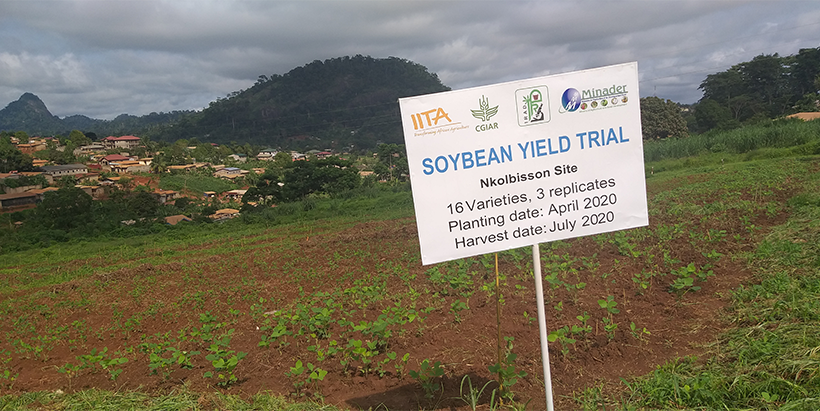July 2020
During the COVID-19 pandemic IITA-Cameroon is providing high-quality seeds of improved crop varieties to smallholder farmers through the Ministry of Agriculture and Rural Development (MINADER). The seed legislation in Cameroon classifies seed into basic seeds, certified seeds, and standard (commercial) seeds. IITA, in collaboration with Cameroon’s Agricultural Research Institute for Development (IRAD), has the responsibility of producing basic seeds for major commodities such as cassava, plantain, maize, soybean, and cowpea, which are the Institute’s mandate crops and staple foods for millions of people.

IITA produces basic seeds for major crops, including cassava.
MINADER has requested to emphasize the introduction of biofortified cassava through its various projects. Introduced varieties undergo preliminary yield and advanced testing in trial fields for two cropping cycles. During these two trials, any variety with low yield or high susceptibility to major pests and diseases get dropped. After this, farmers around the country participate in trials to evaluate the adaptability and resistance of the preselected varieties in contrasting environments.
Basic seed from the final selection are cultivated in multiplication plots, and the resulting seeds are certified by the Department of Regulation and Quality Control of Agricultural Inputs (DRCQ), after at least two inspections. For commodities like banana and plantain, the IITA tissue culture laboratory produces in vitro plants for mainly MINADER and the private sector.
The coronavirus pandemic has caused much uncertainty for farmers, making it harder to access improved seed. For seed producers, this has created an opportunity to build the food sector and put in place quick recovery measures and a diverse foundation for the food system, beginning with the seeds.

A soybean yield trial site in IITA-Cameroon.
The current food shortages could be a sign of more severe issues in the nearest future. In the context of COVID-19, IITA-Cameroon has been intervening in the seed system by introducing cowpea and soybean seeds from Ibadan and establishing small multiplication plots for cassava and maize on the station grounds.
IITA is also intervening by building the capacity of the national agricultural research system through a series of workshops organized annually to train seed multipliers and seed inspectors on variety identification, high-quality seed production techniques, integrated pest management (IPM), and integrated soil fertility management (ISFM). As a result, IITA varieties contributed to the first official catalog of plant species and varieties printed in 2020 with 11 cassava varieties (79% of the total), three plantain varieties (21%), 19 soybean varieties (100%), and seven maize varieties (28 %).
Over 109 cassava multipliers and seed inspectors, of whom 12% are women, have received training in the last two years in cassava seed production and IPM.